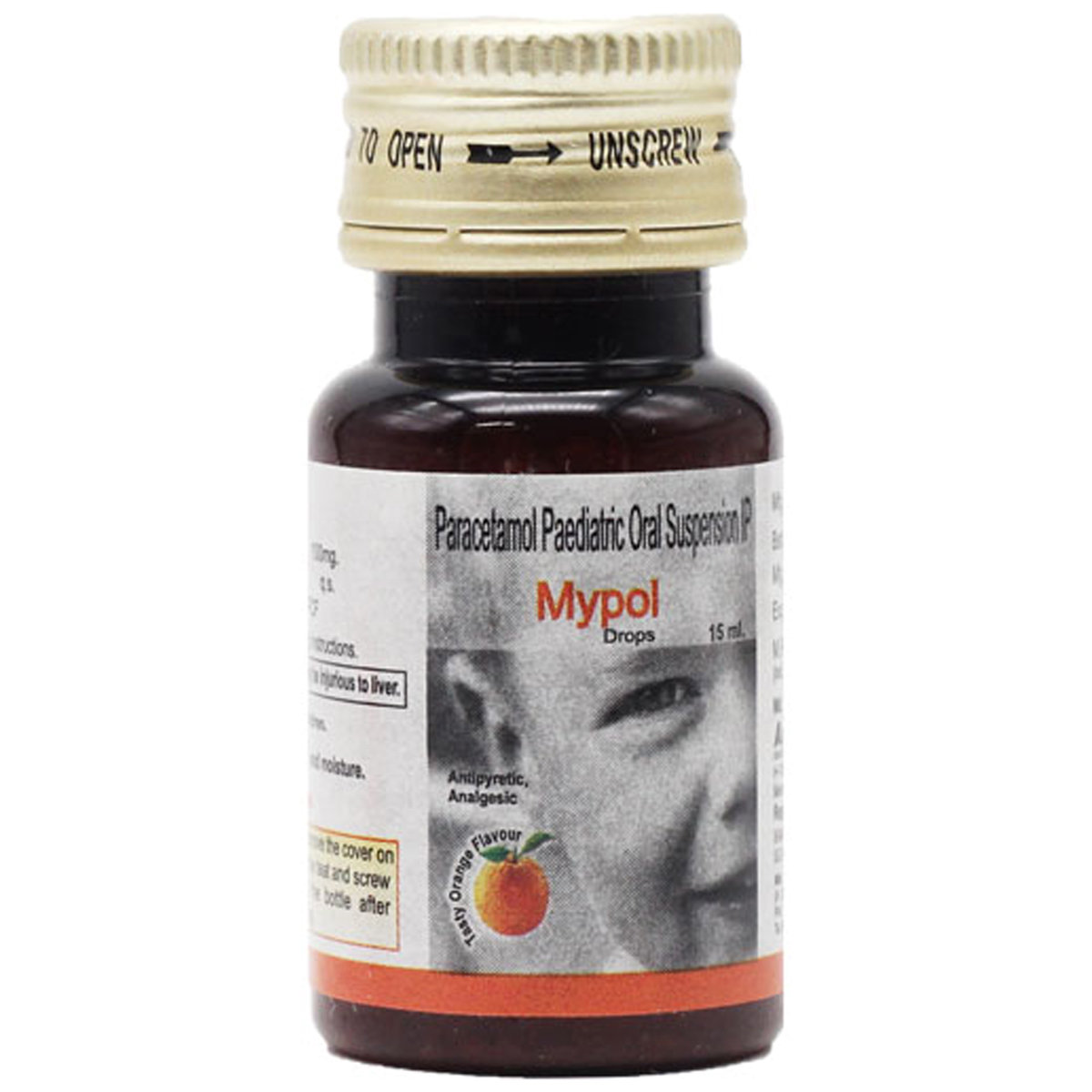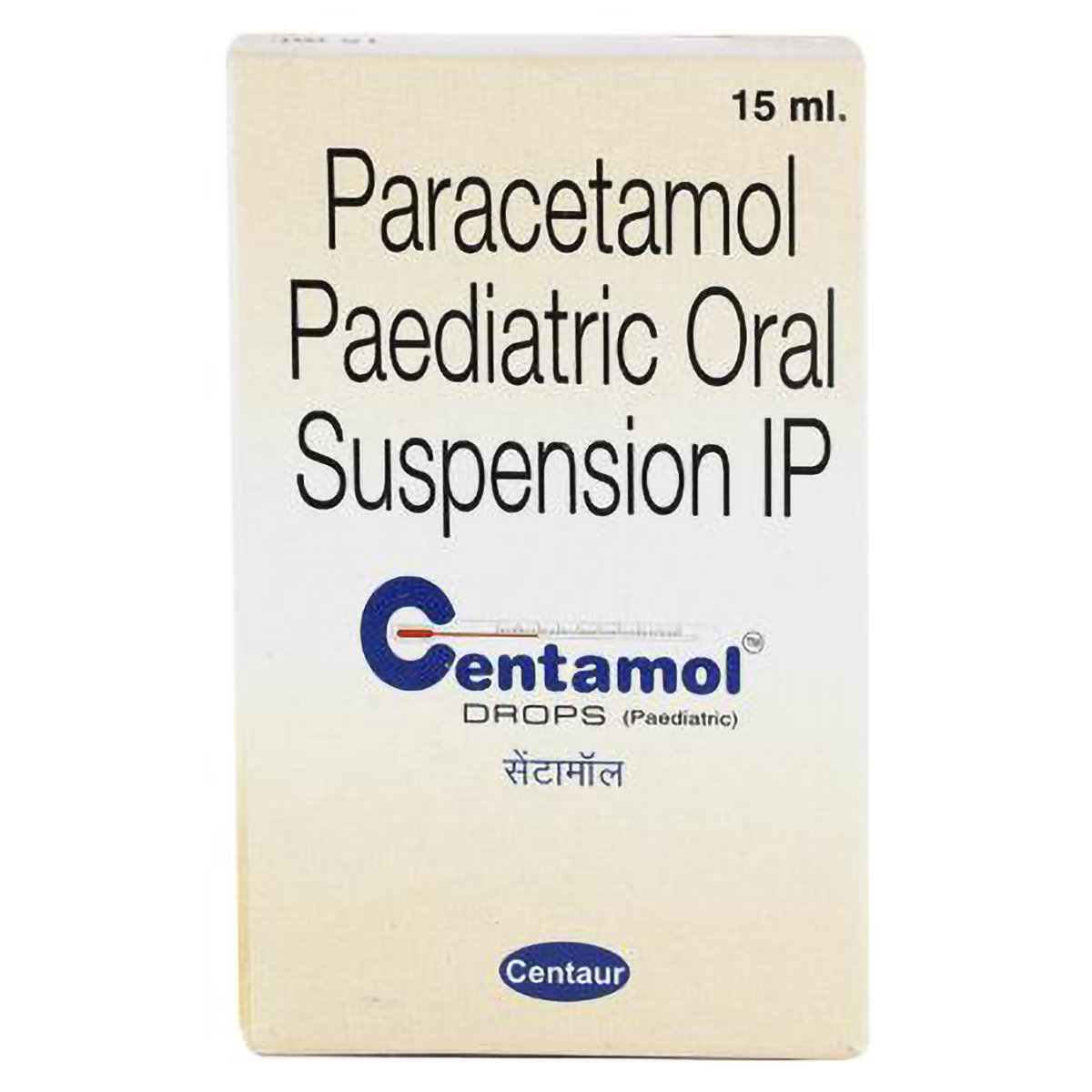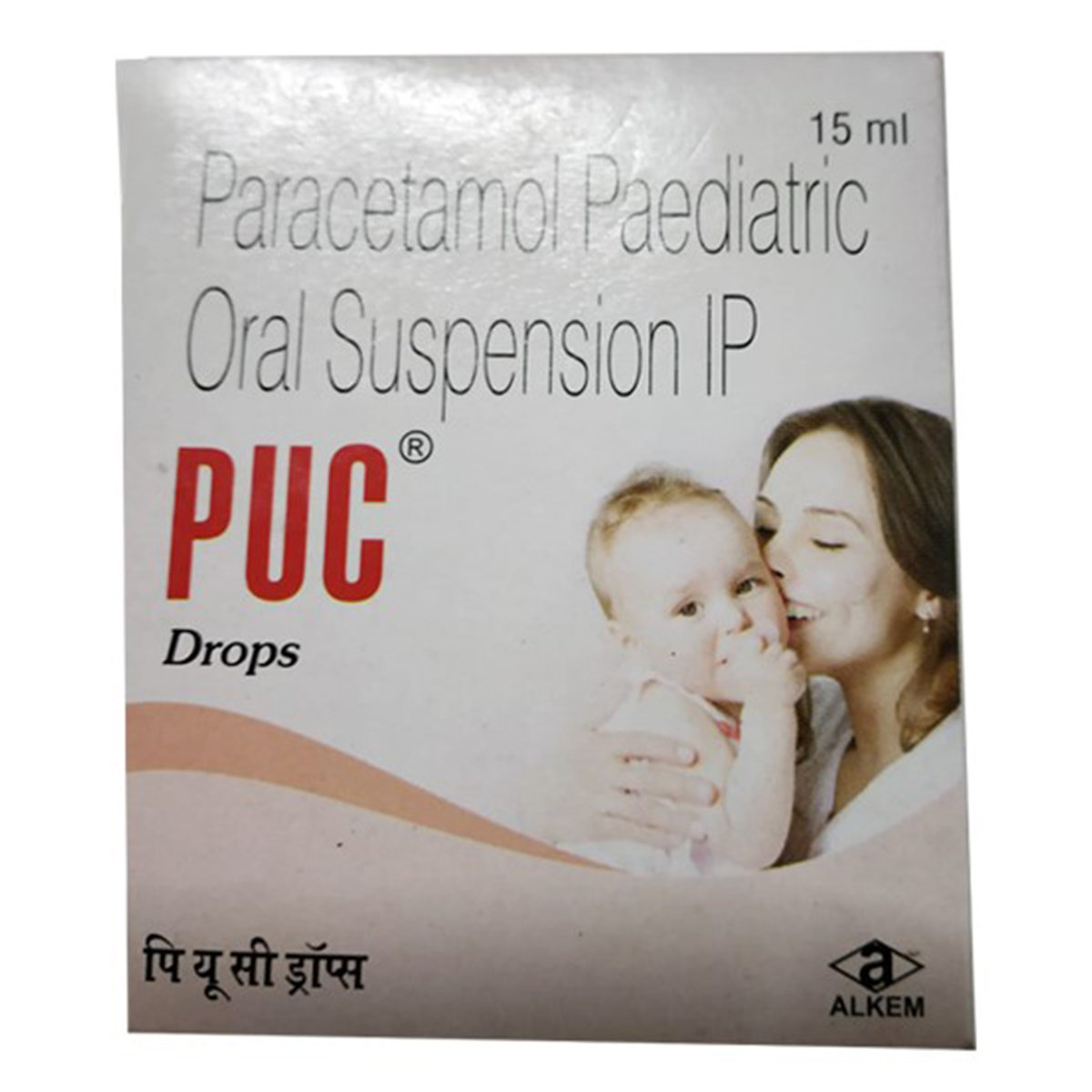PCM 100 mg Drops 15 ml
MRP ₹33
(Inclusive of all Taxes)
₹5.0 Cashback (15%)
Provide Delivery Location
Online payment accepted
 Prescription drug
Prescription drugWhats That
Composition :
Manufacturer/Marketer :
Consume Type :
Expires on or after :
Return Policy :
About PCM 100 mg Drops
PCM 100 mg Drops Test Testing Gopal belongs to the group of medicines called analgesics (pain killers), and antipyretics (fever-reducing agents) used to reduce fever and treat mild to moderate pain. Also, it is used to relieve headache, migraine, toothache, period pain, back pain, muscle pain and rheumatic pains. Pain and fever are caused by the activation of pain receptors due to the release of certain natural chemicals in the body like prostaglandin.
PCM 100 mg Drops works by inhibiting the production of certain chemical messengers in the brain known as prostaglandins. Thus, reduces pain. Also, PCM 100 mg Drops affects an area of the brain that regulates body temperature known as the hypothalamic heat-regulating centre. Thereby, it reduces fever.
Take PCM 100 mg Drops as advised by your physician. Your doctor will recommend how often you need to take PCM 100 mg Drops based on your medical condition. In some cases, PCM 100 mg Drops may cause side effects such as nausea, stomach pain and dark coloured urine. Most of these side effects of PCM 100 mg Drops do not require medical attention and gradually resolve over time. However, if the side effects persist or worsen, please consult your doctor.
Avoid taking PCM 100 mg Drops if allergic to it. PCM 100 mg Drops is not recommended for children below 6 years of age. If you are pregnant or breastfeeding, please consult a physician before using PCM 100 mg Drops. Avoid alcohol consumption with PCM 100 mg Drops as it may increase the risk of liver damage. If you have an impaired nutritional state caused by anorexia (eating disorder), malnutrition or alcohol abuse or if you are dehydrated, inform your doctor before taking PCM 100 mg Drops.a
Uses of PCM 100 mg Drops
Directions for Use
Tablet/capsule: Swallow it as a whole with a glass of water. It can be taken with or without food anytime. Do not crush, break or chew it. Oral liquid: Shake the bottle well before use. Take the suggested dose by mouth using the measuring cup/dosing syringe/dropper provided by the pack.
Key Benefits
PCM 100 mg Drops contains Paracetamol, an analgesic (pain killer) and antipyretic (reduces fever). It inhibits the production of certain chemical messengers in the brain known as prostaglandins. Thus, reduces pain. Also, PCM 100 mg Drops affects an area of the brain that regulates body temperature known as the hypothalamic heat-regulating centre. Thereby, it reduces fever.
How PCM 100 mg Drops Works
Storage
- Inform your doctor about the nausea and discuss possible alternatives to the medication or adjustments to the dosage.
- Divide your daily food intake into smaller, more frequent meals to reduce nausea.
- Opt for bland, easily digestible foods like crackers, toast, plain rice, bananas, and applesauce.
- Avoid certain foods that can trigger nausea, such as fatty, greasy, spicy, and smelly foods.
- Drink plenty of fluids, such as water, clear broth, or electrolyte-rich beverages like coconut water or sports drinks.
- Use ginger (tea, ale, or candies) to help relieve nausea.
- Get adequate rest and also avoid strenuous activities that can worsen nausea.
- Talk to your doctor about taking anti-nausea medication if your nausea is severe.
- Record when your nausea occurs, what triggers it, and what provides relief to help you identify patterns and manage your symptoms more effectively.
- Preventing Vomiting (Before it Happens)
- Take medication exactly as prescribed by your doctor. This can help minimize side effects, including vomiting.
- Having a small meal before taking your medication can help reduce nausea and vomiting.
- Talk to your doctor about taking anti-nausea medication along with your prescribed medication.
- Managing Vomiting (If it Happens)
- Try taking ginger in the form of tea, ale, or candy to help alleviate nausea and vomiting.
- What to Do if Vomiting Persists
- Consult your doctor if vomiting continues or worsens, consult the doctor for guidance on adjusting your medication or additional treatment.
- Manage stress by practising deep breathing, yoga or meditation.
- Participating in activities you enjoy, or exercising may also help manage agitation.
- Get enough sleep. Maintain a regular sleep cycle.
- Exercise regularly. Try physical activities like walking, running, or dancing.
- Prepare for a restful night's sleep: Develop a calming pre-sleep routine, like reading or meditation, to help your body relax and prepare for sleep.
- Create a sleep-conducive Environment: Make bedroom a sleep haven by ensuring it is quiet, dark and calm.
- Follow a Sleep Schedule: Go to bed and get up at the same time every day to help regulate your body's internal clock and increase sleep quality.
- Try relaxing techniques like deep breathing, mindfulness meditation and any others.
- Limit stimulating activities before bedtime: Avoid stimulating activities before bedtime to improve sleep quality.
- Monitor Progress: Keep track of your sleep patterns to identify areas for improvement.
- Consult a doctor if needed: If these steps don't improve your sleep, consult a doctor for further guidance and therapy.
- Inform your doctor about your constipation symptoms. They may adjust your medication or advise alternative treatments.
- Stay hydrated by drinking sufficient of water (at least 8-10 glasses a day) to help soften stool and promote bowel movements.
- Increase fibre intake by eating foods high in fibre, such as fruits, whole grains, vegetables and legumes, to help bulk up the stool.
- Establish a bowel routine by trying to go to the bathroom at the same time each day to train your bowels.
- Engaging in regular exercise, like walking or yoga, can support in bowel movement stimulation.
- Consult your doctor if constipation persists, and discuss alternative treatments or adjustments to your medication.
- Inform Your Doctor: Notify your doctor immediately about your diarrhoea symptoms. This allows them to adjust your medication or provide guidance on managing side effects.
- Stay Hydrated: Drink plenty of fluids to replace lost water and electrolytes. Choose water, clear broth, and electrolyte-rich drinks. Avoid carbonated or caffeinated beverages to effectively rehydrate your body.
- Follow a Bland Diet: Eat easy-to-digest foods to help firm up your stool and settle your stomach. Try incorporating bananas, rice, applesauce, toast, plain crackers, and boiled vegetables into your diet.
- Avoid Trigger Foods: Steer clear of foods that can worsen diarrhoea, such as spicy, fatty, or greasy foods, high-fibre foods, and dairy products (especially if you're lactose intolerant).
- Practice Good Hygiene: Maintain good hygiene to prevent the spread of infection. To stay healthy, wash your hands frequently, clean and disinfect surfaces regularly, and avoid exchanging personal belongings with others.
- Take Anti-Diarrheal Medications: If your doctor advises, anti-diarrheal medications such as loperamide might help manage diarrhoea symptoms. Always follow your doctor's directions.
- Keep track of your diarrhoea symptoms. If they don't get better or worse or are accompanied by severe stomach pain, blood, or dehydration signs (like extreme thirst or dark urine), seek medical help.
Drug Warnings
Avoid taking PCM 100 mg Drops if allergic to it. PCM 100 mg Drops is not recommended for children below 6 years of age. If you are pregnant or breastfeeding, please consult a physician before using PCM 100 mg Drops. Avoid alcohol consumption with PCM 100 mg Drops as it may increase the risk of liver damage. If you have an impaired nutritional state caused by anorexia (eating disorder), wrong nutrition or alcohol abuse or if you are dehydrated, inform your doctor before taking PCM 100 mg Drops. Avoid taking more than recommended doses as it may increase the risk of serious liver damage.
Drug-Drug Interactions
Drug-Drug Interactions
Login/Sign Up
Co-administration of PCM 100 mg Drops 15 ml and Ketoconazole may increase the risk of liver injury.
How to manage the interaction:
Although there is a possible interaction between PCM 100 mg Drops 15 ml and Ketoconazole, you can take these medicines together if prescribed by a doctor. However, if you have joint pain or swelling, fever, chills, unusual bleeding or bruising, skin rash, itching, over-tiredness, nausea, vomiting, loss of appetite, stomach pain, dark-colored urine, light-colored stools, and/or yellowing of the skin or eyes, contact a doctor immediately as these may be signs and symptoms of liver damage. Do not discontinue the medication without consulting a doctor.
Co-administration of PCM 100 mg Drops 15 ml may decrease the excretion rate of Oxazepam which could result in a higher serum level.
How to manage the interaction:
Although there is a possible interaction between Oxazepam and PCM 100 mg Drops 15 ml, you can take these medicines together if prescribed by a doctor. Do not stop using any medications without a doctor's advice.
Co-administration of ketamine and PCM 100 mg Drops 15 ml may decrease the effectiveness of Ketamine which could result in a higher blood level.
How to manage the interaction:
Although taking Ketamine and PCM 100 mg Drops 15 ml together can evidently cause an interaction, it can be taken if a doctor has suggested it. If you're feeling very sleepy or having trouble breathing, it's important to contact your doctor right away. Do not stop using any medications without a doctor's advice.
Co-administration of Lomitapide and PCM 100 mg Drops 15 ml may increase the risk of severity of liver injury.
How to manage the interaction:
Although there is a possible interaction between PCM 100 mg Drops 15 ml and Lomitapide, you can take these medicines together if prescribed by a doctor. Do not stop using any medications without a doctor's advice.
Co-administration of PCM 100 mg Drops 15 ml and Leflunomide may increase the risk of liver problems.
How to manage the interaction:
Although there is a possible interaction between PCM 100 mg Drops 15 ml and Leflunomide, they can be taken together if prescribed by a doctor. However, if you experience fever, chills, joint pain or swelling, unusual bleeding or bruising, skin rash, itching, less desire to eat, fatigue, nausea, vomiting, abdominal pain, or yellowing of the skin or eyes, contact a doctor immediately. Do not discontinue any medications without consulting a doctor.
Co-administration of Mipomersen with PCM 100 mg Drops 15 ml may increase the risk or severity of liver injury.
How to manage the interaction:
There may be a possibility of interaction between PCM 100 mg Drops 15 ml and Mipomersen, but it can be taken if prescribed by a doctor. Do not stop using any medications without talking to a doctor.
Co-administration of Teriflunomide with PCM 100 mg Drops 15 ml may increase the risk or severity of Liver problems.
How to manage the interaction:
Taking PCM 100 mg Drops 15 ml with Teriflunomide together can possibly result in an interaction, but it can be taken if a doctor has advised it. Do not discontinue any medications without consulting a doctor.
Co-administration of PCM 100 mg Drops 15 ml and Valdecoxib may increase the risk or severity of adverse effects.
How to manage the interaction:
Although there is a possible interaction between PCM 100 mg Drops 15 ml and Valdecoxib, you can take these medicines together if prescribed by a doctor. However, if the side effects worsen, please consult a doctor.
Drug-Food Interactions
Drug-Food Interactions
Login/Sign Up
Diet & Lifestyle Advise
Get adequate sleep as resting the muscles can help in reducing inflammation and swelling.
Follow heat or cold therapy, apply a cold or hot compress on the joints for 15-20minutes regularly.
Acupuncture, massage and physical therapy may also be helpful.
Eat foods rich in antioxidants such as berries, spinach, kidney beans, dark chocolate, etc.
Foods containing flavonoids such as soy, berries, broccoli, grapes and green tea help in reducing inflammation.
Maintain a healthy weight by performing regular low-strain exercises and eating healthy food.
Avoid smoking and alcohol consumption.
Side Effects of PCM 100 mg Drops
side effect 1
Habit Forming
Therapeutic Class
All Substitutes & Brand Comparisons
RX
Out of StockParayes Drops 15 ml
Zee Laboratories Ltd
₹19.06
(₹1.14/ 1ml)
42% CHEAPERRX
Out of StockPaarago 100 Drops 30 ml
Isomer Healthcare Pvt Ltd
₹46.5
(₹1.4/ 1ml)
29% CHEAPERRX
Out of StockMypol Drops 15 ml
Anhox Healthcare Pvt Ltd
₹25
(₹1.5/ 1ml)
24% CHEAPER
Author Details
We provide you with authentic, trustworthy and relevant information
Drug-Diseases Interactions
Drug-Diseases Interactions
Login/Sign Up
Chronic alcoholics may have a higher risk of hepatotoxicity when using PCM 100 mg Drops 15 ml. Patients using PCM 100 mg Drops 15 ml may cause severe liver damage, including acute liver failure that required a liver transplant and resulted in death.
How to manage the interaction:
PCM 100 mg Drops 15 ml should be used with caution in patients who consume three or more alcoholic drinks a day. Avoid alcohol consumption while taking PCM 100 mg Drops 15 ml. If you have nausea, vomiting, fever, rash, anorexia (eating disorder), over-tiredness, upper right stomach pain, dark urine, and jaundice, contact your doctor as these may be signs and symptoms of liver injury.
The liver predominantly converts PCM 100 mg Drops 15 ml to inactive forms. Patients with hepatic impairment may be more prone to toxicity because their minor metabolic pathways are more active.
How to manage the interaction:
PCM 100 mg Drops 15 ml should be used with caution in patients with kidney insufficiency. Also, it is recommended to avoid drinking alcohol while taking PCM 100 mg Drops 15 ml.
FAQs
PCM 100 mg Drops works by inhibiting the production of certain chemical messengers in the brain known as prostaglandins. Thus, reducing pain. Also, PCM 100 mg Drops affects an area of the brain that regulates body temperature known as the hypothalamic heat-regulating centre. Thus, it reduces fever.
You are not recommended to take PCM 100 mg Drops with warfarin as co-administration of these two medicines may increase the risk of bleeding more easily. However, if you are supposed to use these medicines together, you are advised to contact your physician so that the dose may be adjusted appropriately to use safely.
PCM 100 mg Drops may affect how certain tests work such as blood sugar test and uric acid test. Therefore, if you are about to undergo blood test or any laboratory tests, inform your physician or lab technician that you are taking PCM 100 mg Drops.
You are not recommended to take PCM 100 mg Drops with other paracetamol containing products as it may cause paracetamol overdose.
If you take more than suggested doses of PCM 100 mg Drops, it may cause overdose and lead to serious liver damage. The symptoms of overdose include vomiting, loss of appetite, stomach pain, paleness and nausea. However, if you notice any of these symptoms while taking PCM 100 mg Drops, please consult a doctor immediately.
Drug-Drug Interactions Checker List
- WARFARIN
- CHOLESTYRAMINE
- ASPIRIN
- METOCLOPRAMIDE
- DOMPERIDONE
- CHLORAMPHENICOL
- RIFAMPICIN
- PROBENECID
- ISONIAZID
- LAMOTRIGINE
- CARBAMAZEPINE
- PHENYTOIN
Special Advise
If you have a high fever or signs of infection after using PCM 100 mg Drops for more than 3 days or if pain persists after using PCM 100 mg Drops for more than 5 days, please consult a physician.
Disease/Condition Glossary
Pain: It is a term used to describe any unpleasant feeling or discomfort. It occurs due to nerve damage (in cases of backache, toothache, or muscle pain) or persistent stimulation (in headaches or migraine). Pain may vary from mild to severe, depending on the underlying condition.
Fever: It is an abnormal increase in body temperature due to infection, chemotherapy, or various disease condition. If the body temperature is 98.6°F, it is normal and if it goes above 100.4°F (38℃), it is called fever or pyrexia. Body temperature is increased in response to infection or varied problems to protect the body. Flu is one of the most common causes of fever.

Have a query?
Alcohol
Safe if prescribed
You are recommended to avoid consumption of alcohol with Paracetamol as it may cause severe liver damage.
Pregnancy
Consult your doctor
Please consult a physician if you are pregnant or planning for pregnancy before using this medicine. Your physician may suggest the lowest dose of Paracetamol for the shortest duration if you are pregnant.
Breast Feeding
Consult your doctor
Paracetamol may be excreted in small amounts in breast milk. Therefore, please consult a physician before using this medicine if you are breastfeeding.
Driving
Safe if prescribed
PCM 100 mg Drops usually does not affect your ability to drive or operate machinery.
Liver
Consult your doctor
Take PCM 100 mg Drops with caution, especially if you have a history of liver diseases/conditions. The dose may be adjusted by your physician as required.
Kidney
Consult your doctor
Take PCM 100 mg Drops with caution, especially if you have a history of kidney diseases/conditions. The dose may be adjusted by your physician as required.
Children
Safe if prescribed
Please consult a doctor. Your doctor will prescribe a suitable dose of Paracetamol based on the age, bodyweight and condition of your child.













_0.jpg?tr=q-85)
